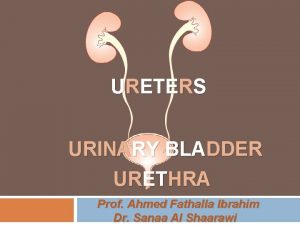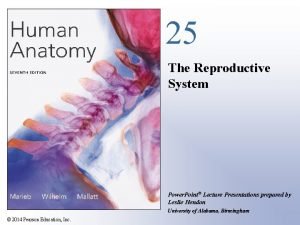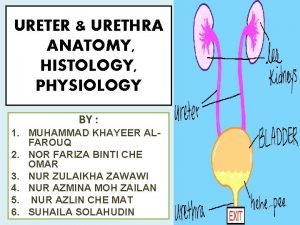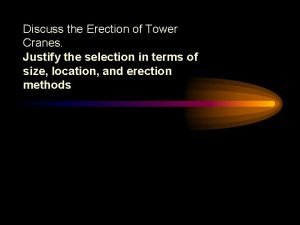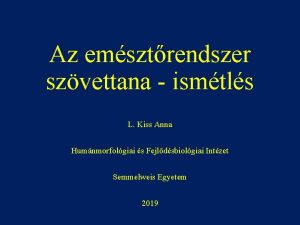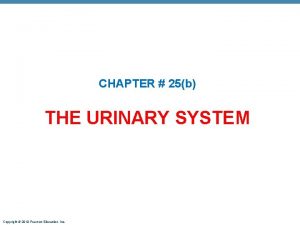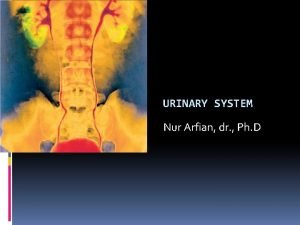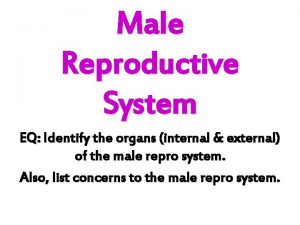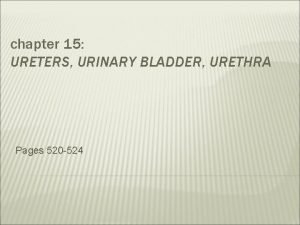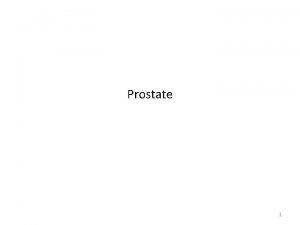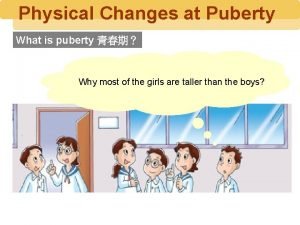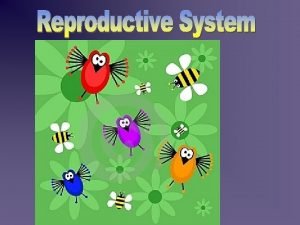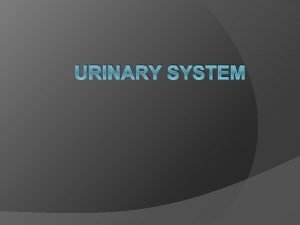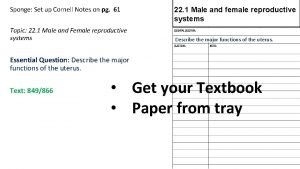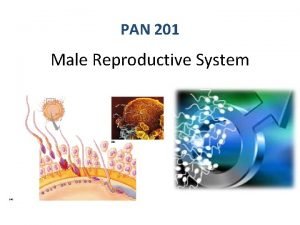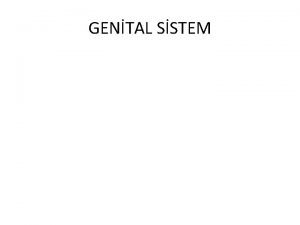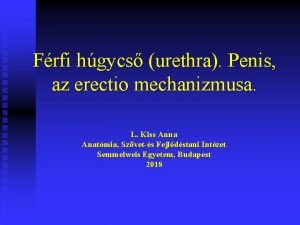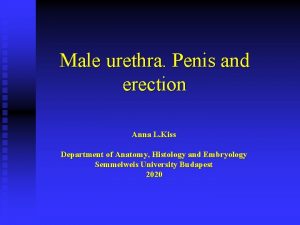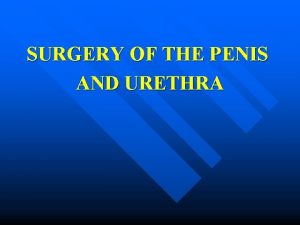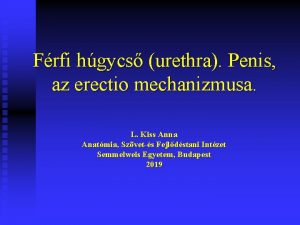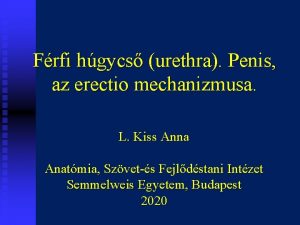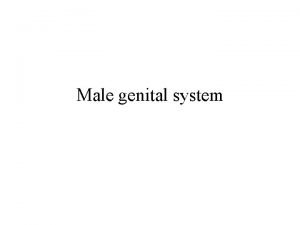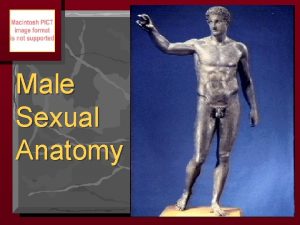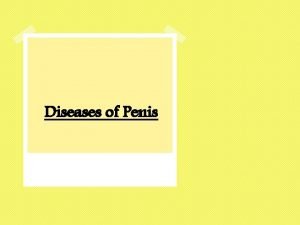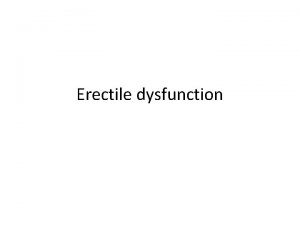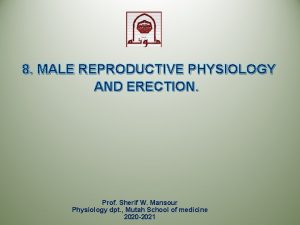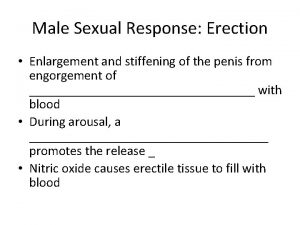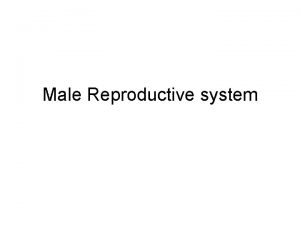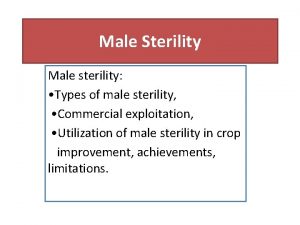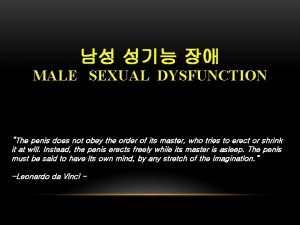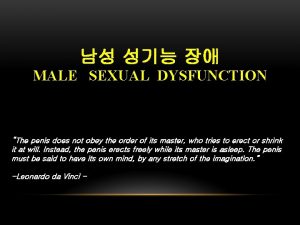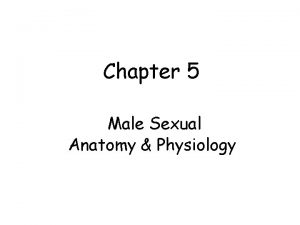Male urethra Penis and erection Anna L Kiss


































- Slides: 34

Male urethra. Penis and erection Anna L. Kiss Department of Anatomy, Histology and Embryology Semmelweis University Budapest 2018

The male urethra has three parts Long (about 20 cm) muscular tube) 1. Prostatic part: pierces the prostate 2. Membranous part: the 3. Spongy part: the longest shortest part, passes through the pelvic diaphragm part, running in the axis of the penis

1. ) Prostatic part: • median longitudinal ridge: urethral crest in the middle of this crest: seminal colliculus: rounded eminence • a slitlike orifice, leading into a small vestigeal cul-de-sac: prostatic utricule, • on each side of this utricle: openings of the ejaculatory ducts 2. ) Membranous part: voluntary sphincter that compress the urethra (from the pelvic diaphragm) 3. ) Spongy part: end: glans penis fossa navicularis: proximal: bulbourethral glands mucus secreting urethral glands

Three parts of the male urethra 1 3 2

Endoscopy of the urethra n n When inserting catheters and sounds the curves in the urethra must be considered: The membranous part runs inferiorly and anteriorly, The prostatic part takes a slight curve that is concave anteriorly The spongy part: well covered inferiorly and posteriorly erectile tissue Short segment of the membranous urethra is unprotected!! In the navicular fossa: transverse mucosa fold (about 2 cm from the external opening of the urethra)

Histological structure of the male urethra n Prostatic part: urothelium (vesical sphincter m. : smooth muscle!) n Membranous part: pseudostratified or stratified columnar epithelium the urogenital diaphargm: striated muscle makes a sphincter: sphincter urethrae m. n Penil (or spongy) part: pseudostratified columnar epithelium t distal end: stratified non-keratinized squamous epithelium t at the orifice: stratified keratinized squamous epithelium t Bulbourethral glands and mucus secreting Littre glands empty into it

Penis

Penis Three cylindrical bodies: n Corpora cavernosa – two erectile bodies enclosed by a dense white fibrous capsule: tunica albuginea. n Corpus spongiosum – ventrally (corpus cavernosum urethrae) containing the spongy urethra, ending in the glans penis n Crura – attached to the conjoint rami of pubis and ischium. body Root: bulb+crura+bulbospongiosus m. )

Erectile bodies of the penis and urethra • skin • spf fascia: thin smooth m. + spf. dorsal v. • fascia penis: deep dorsal v. + 2!!! dorsal art. • tunica albuginea

Blood supply of the penis n Two dorsalis penile aa. –terminal branch of the internal pudendal artery n Deep arteries (cavernous artery) – paired, principal artery supplying the cavernous spaces n Bulbourethral artery– spongy urtethra (internal pudendal)



Venous drainage Superficial – spf. dorsal vein n Deep – deep dorsal vein sinuses – emissary veins - circumflex veins n

Innervation of the penis n Autonom (vegetative) - sympathetic (T 11 -L 2) fibers - parasymphathetic (S 2 -S 4) fibers: nervus cavernosus (in the pelvis) n Somatic innervation sensory and motor innervation of the extracorporal striated muscles: nervus pudendus

Innervation of the penis n Cavernous nerves posterolaterally to the prostate enters the CC and CS, regulates the blood flow of the penis. n Dorsal n. of the penis (from pudendal nerve) somatic nerve, primary innervates the skin of the penis n

AZ ERECTION

Erection is: sexual reponse n n n Erection (haemodinamic event regulated by neural mechanism) is resulted in by various sexual stimuli: u Touch and mechanical stimulation of the penis (reflexogen) u Erotic view, sound, and smell (central or psychogenic) The erection can be caused but also inhibited by any emotional or higher mental activity The third type of the erection is the so called nocturnal erection associated to sleeping period.

view smell (occipital) (rhiencephalon) ERECTIO touch imagination (thalamus) (limbic systems)

Sexual stimulus Occlusion of the venous dranaige. Relaxation of the smooth muscle in cavernous spaces and arterioles. Blood inflow to the caveornous spaces. Intracavernous blood pressure > systemic blood pressure ERECTION

In erectile stage: relaxation of the trabecular and arteriolar smooth muscles, vasodilation of aa. helicinae increased blood flow cavernous spaces (sinusoids) are filling in with blood. Expansion of sinusoids press the emissary and circumflex veins. The streches of the tunica albuginea increases this effect significant decrease in venous blodd flow. In flaccid stage: helicine arteries are coiled, arterious blood flow is minimal, venous drainaige is not blocked.

Anatomy of the erection

Erection of the penis (and the clitoris)

Erection of the penis (and the clitoris)

Physiology of the erection Szexual stimulus EAA, OXYTOCIN, DOPAMINE, NO ERECTION Smooth muscle relaxation! c. GMP NO SACRAL PARASYMPATHETIC FIBERS

2+ Ca SYMPATHETIC NEURON 2+ PARASYMPATHETIC NEURON Ca n. NOS NA NO soluble Guanylyl Cyclase NO a 1 NO CONTRACTION c. GMP RELAXATION Smooth muscle

NA VIP PGE 1 NO NA SMOOTH MUSCLE a 1 EP-R VIP-R b 2 c. GMP c. AMP Intracellular calcium RELAXATIO PGF 2 a TXA 2 Ang. II ETA R s. GC AC ET CONTRACTIO

EJACULATION

MEDIATORS OF THE EJACULATION DOPAMINE 5 -HT EJACULATION Smooth muscle contraction! NA SYMPATHETIC NEURONS

Ejaculation n Ejaculation = emission + propulsion (expulsio) Ejaculation ≠ orgasmus Ejaculatum (~2 ml)=10% from the prostate + 10% from vas deferens + 75% a from seminal vesicule + 5% from Cowper’s glands + <0. 1% spermatozoa

Seminalis emission and ejaculation. Contraction of the reproductiv ducts and accessory organs and release their contant.

Seminalis emissio és ejaculation Sphincter of the bladder sontracts, preventing expulsion of the urine. Bulbospongiosus muscles contract fast and serially; The semen is released (ejaculated) form the urethra (propulsion).

“My brain is my second favorite organ. ” Woody Allen


 Superior surface of urinary bladder
Superior surface of urinary bladder Mesosalpinx
Mesosalpinx Function of the ureter
Function of the ureter How erection happens
How erection happens Erection hardness scale
Erection hardness scale Sexual arousal in men
Sexual arousal in men Erection
Erection Plicae semilunaris colon
Plicae semilunaris colon Ductus intercalaris
Ductus intercalaris Transpyloric plane
Transpyloric plane Hemamioma
Hemamioma Hypospedious
Hypospedious Membranous urethra
Membranous urethra A gonadalis
A gonadalis Penile urethra
Penile urethra Anatomy of the urinary tract
Anatomy of the urinary tract Stricture treatment in pune
Stricture treatment in pune Membranous urethra
Membranous urethra Is puberty a physical or chemical change
Is puberty a physical or chemical change Leydig cells
Leydig cells Urethra
Urethra Development of urethra
Development of urethra Bowman's capsule
Bowman's capsule Q tip test urethra
Q tip test urethra Karunkula uretra
Karunkula uretra Nephron loop
Nephron loop Pendulosa
Pendulosa Sponge reproductive system
Sponge reproductive system Epididymiis
Epididymiis How does hiv get into the urethra
How does hiv get into the urethra Seminal colliculus
Seminal colliculus Penila
Penila Ostium vaginae
Ostium vaginae Erectio
Erectio Anterior urethra
Anterior urethra
